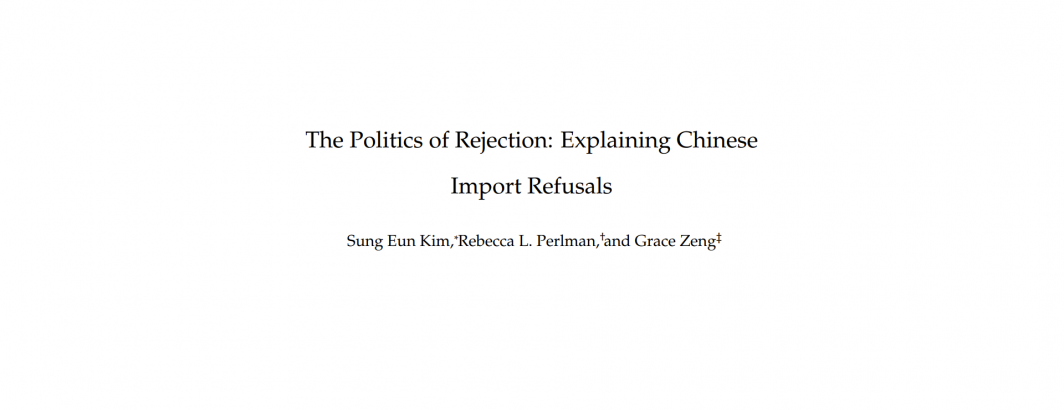
Health and safety standards offer a convenient means by which governments can credibly claim to be protecting the population, even while pursuing less publicly oriented goals. In the realm of international trade, such regulatory standards have most often been studied as a method of veiled protectionism that can help nations privilege domestic industry while skirting World Trade Organization requirements of openness. Yet precisely because health and safety standards create ambiguity about their intent and are therefore difficult to punish, nations may be incentivized to use them for goals that extend well beyond protecting domestic industry. In particular, we theorize that governments will, at times, use regulatory barriers as a means of coercive diplomacy. In order to show this, we collect comprehensive data on import refusals by Chinese border inspectors between 2010 and 2022. Though ostensibly intended to keep dangerous products out of the hands of Chinese consumers, we demonstrate that import rejections have systematically been used by the Chinese government as a way to punish states that act against China’s interest.